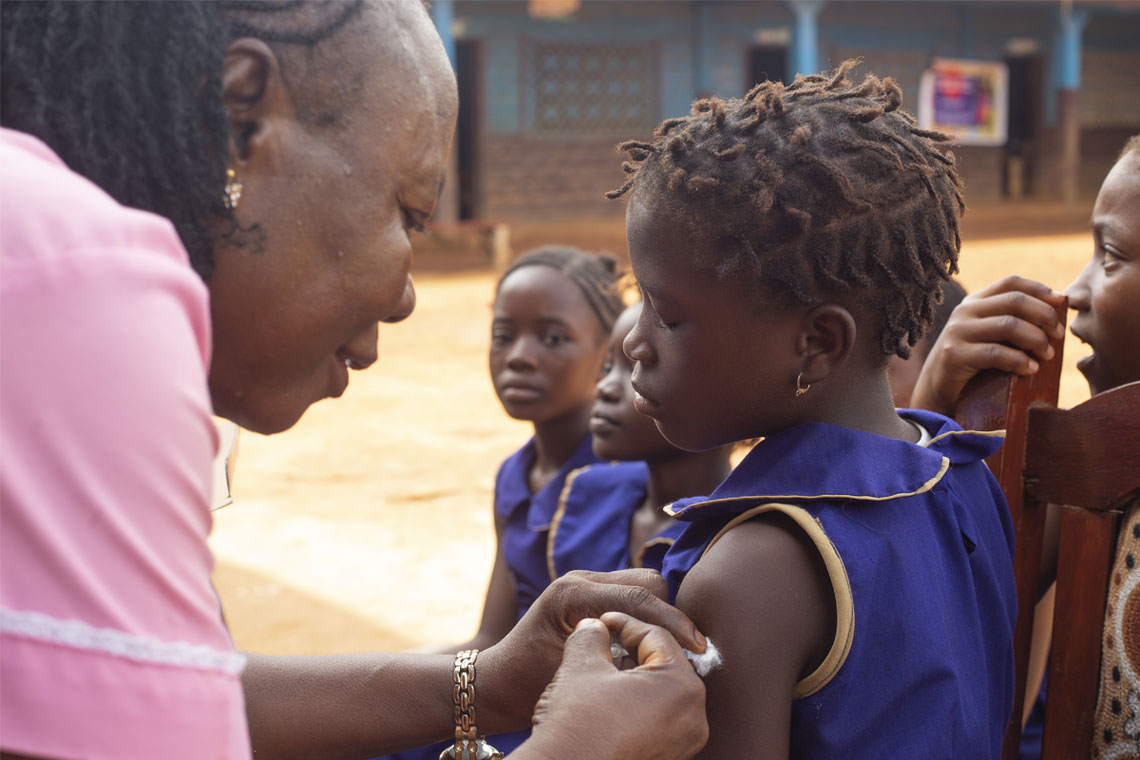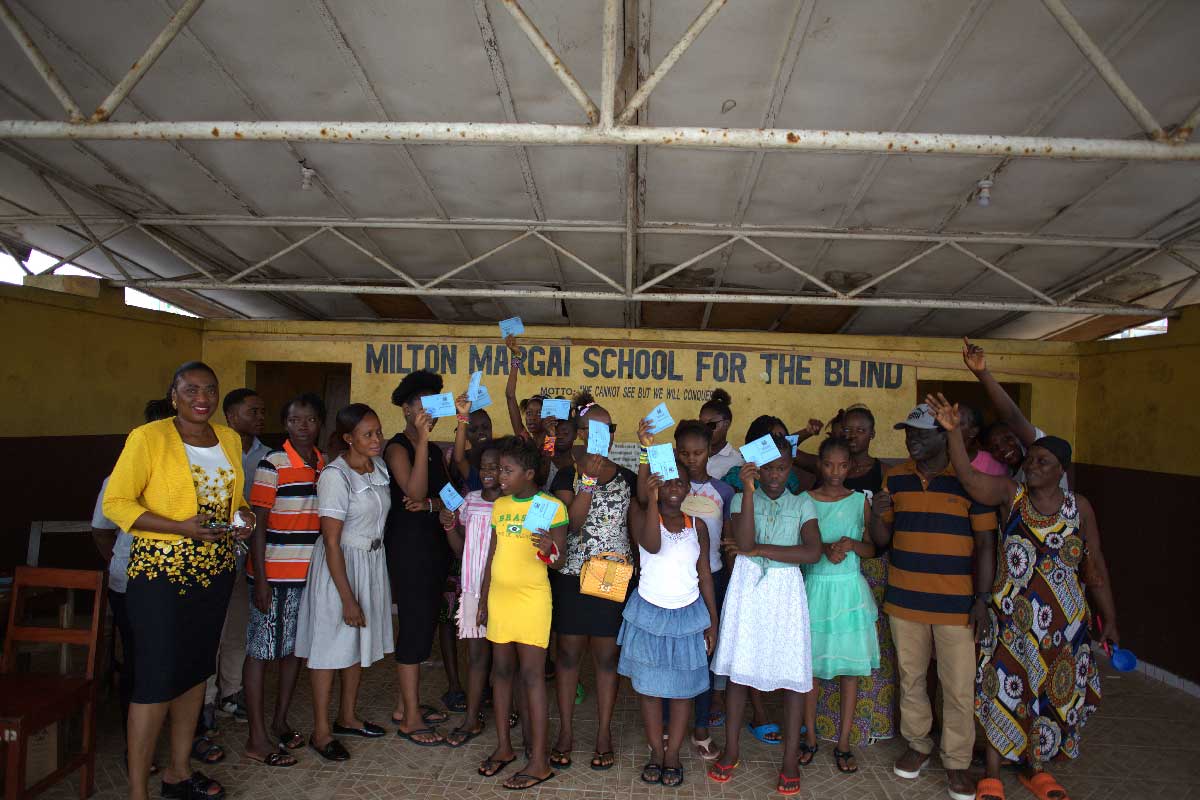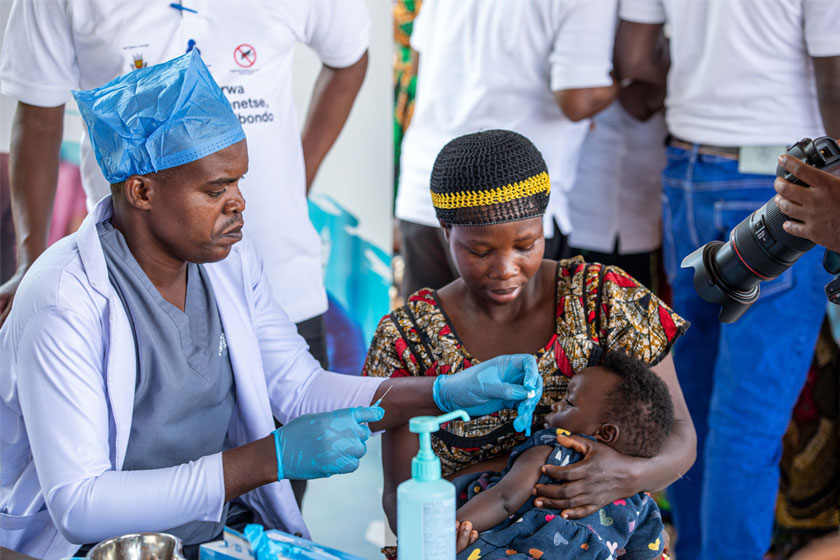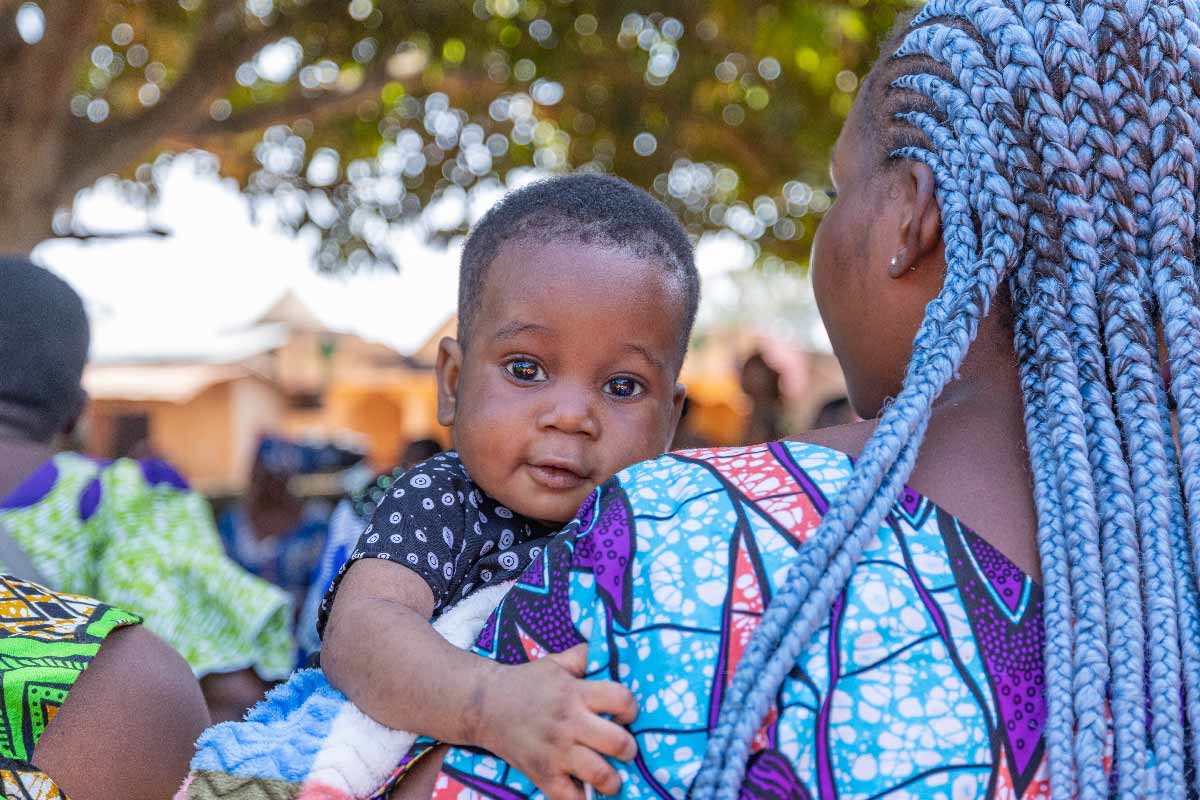Immunisation backsliding could kill 49,000 people: catch-up strategies could prevent 80% of those deaths
Pandemic disruptions to life-saving vaccine programmes are costing lives, but most could be saved by targeted catch-up programmes.
- 18 April 2024
- 3 min read
- by Gavi Staff
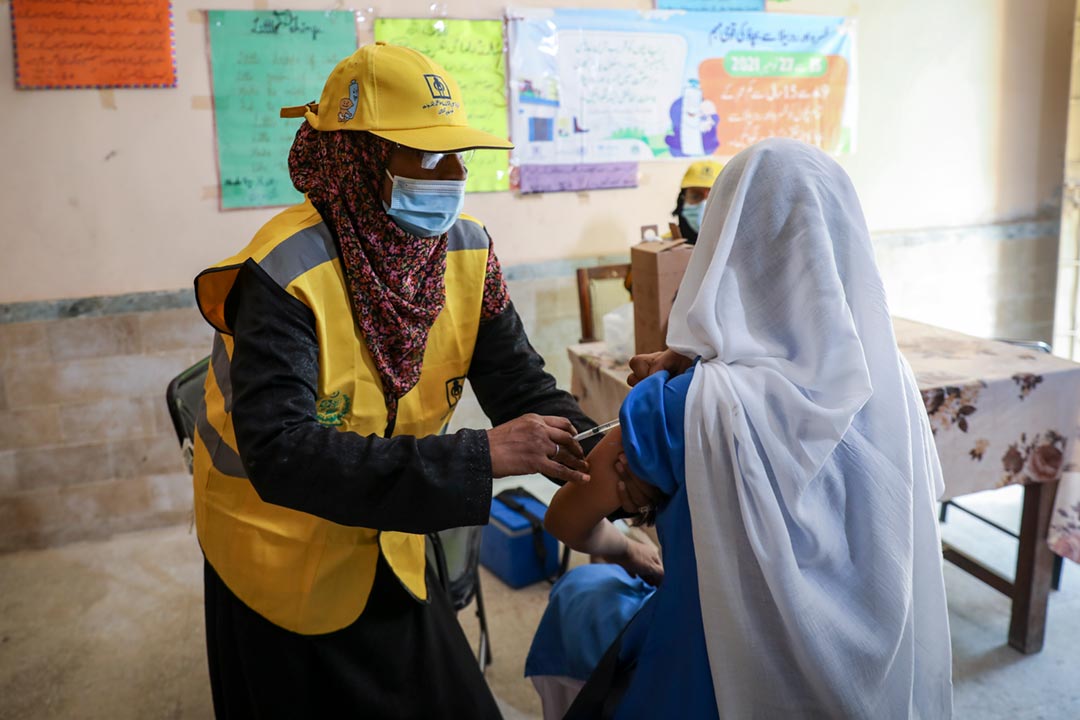
The COVID-19 pandemic disrupted the delivery of key health services, including essential immunisations against killer childhood diseases, leaving millions vulnerable.
With so many children left unprotected against deadly diseases, there is potential for thousands of additional deaths but, as researchers are finding, many of these could be prevented by urgent catch-up programmes.
The researchers drilled down into six priority pathogens and estimated that disruptions in vaccination could lead to 49,000 additional deaths between calendar years 2020 and 2030 – 90% of these were due to measles.
Important progress that had been made in raising immunisation rates over the past two decades stalled over two years as the world came to a standstill. Disruptions to trade and travel meant that countries weren't always able to get hold of vaccines, while social mobility restrictions and the burden on the health care system from responding to COVID-19 meant that often people couldn't get vaccinated at health centres nor were community health workers able to go out to remote areas.
By the end of 2021, disruptions to immunisation services were reported by 53% of the 95 countries that responded to a WHO survey , representing an 11% increase from the third quarter. For instance, 18 measles vaccination campaigns that had been postponed since 2020 were still delayed in 2021.
Katy Gaythorpe at Imperial College London, UK, and colleagues published a study looking at the effect of pandemic-related disruptions on vaccine-preventable diseases in the April 2024 issue of The Lancet Global Health. The researchers are part of the Vaccine Impact Modelling Consortium (VIMC), which Gavi funds along with the Bill & Melinda Gates Foundation and the Wellcome Trust.
This is the first large-scale assessment of the effect of disruption on immunisation programmes since the WHO-UNICEF estimates of national immunisation coverage were released in July 2022.
Have you read?
The analysis looked at the effects of pandemic disruptions on immunisation against key vaccine-preventable diseases in 2020 and 2021 using data from 112 low- and middle-income countries.
The researchers looked at 14 pathogens in total: typhoid, measles, meningitis A, hepatitis B, human papillomavirus (HPV), Streptococcus pneumoniae (prevented by the pneumococcal conjugate vaccine), Haemophilus influenzae type b (Hib), rotavirus, Japanese encephalitis, yellow fever, rubella, diphtheria, tetanus and pertussis.
They estimated there could be nearly one million deaths as a result of disruptions to vaccines against these 14 antigens between 2020–2030, assuming recovery takes until 2025.
The researchers drilled down into six priority pathogens – measles, rubella, HPV, hepatitis B, meningitis A and yellow fever – and estimated that disruptions in vaccination could lead to 49,000 additional deaths between calendar years 2020 and 2030 – 90% of these were due to measles.
The reassuring news is that the analysis also showed that catch-up activities could avert approximately 79% of excess deaths between 2023 and 2030.
These numbers capture the immediate additional deaths that would have been averted with vaccines like measles, and therefore does not capture the full extent of deaths averted with hepatitis B and HPV vaccines (these two vaccines are given to children and prevent death and disease much later in life).
The reassuring news is that the analysis also showed that catch-up activities could avert approximately 79% of excess deaths between 2023 and 2030.
The study offered insight into where catch-up programmes would be especially impactful. The analysis showed that 70–100% of excess measles deaths could be mitigated in the South-East Asia, Eastern Mediterranean and African regions. For yellow fever, 50–60% of deaths could be averted in the African region.
The authors conclude that their "results emphasise the importance of timely catch-up activities and interventions to address affected vaccine cohorts".
